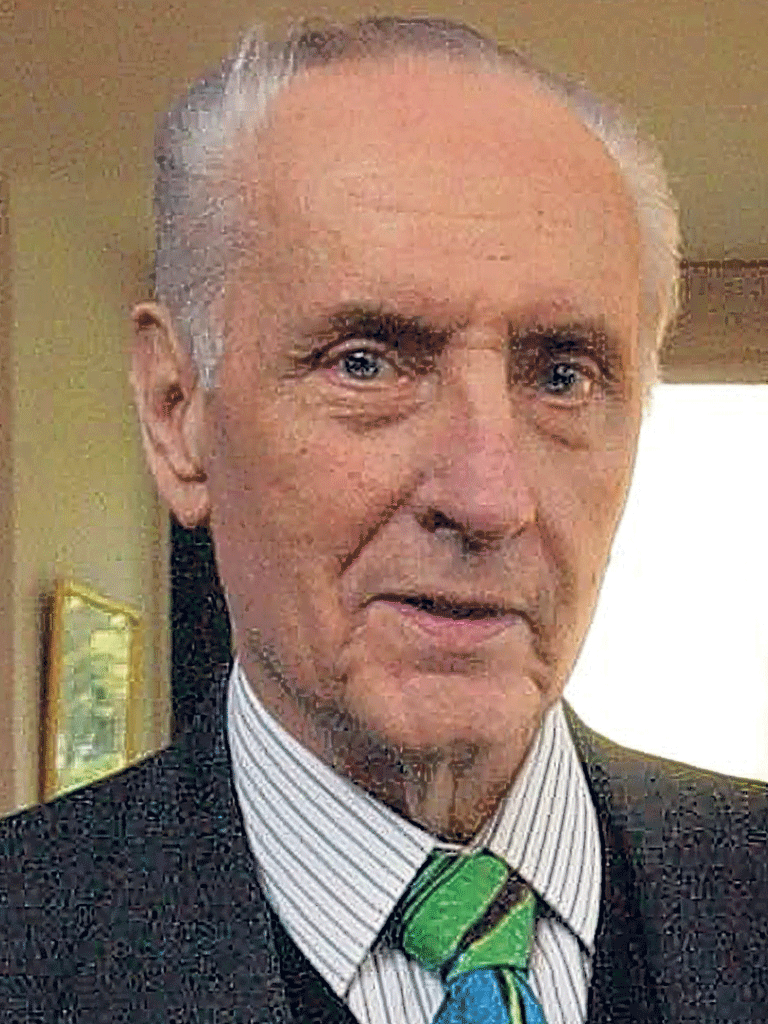Jean Taittinger: Champagne scion who transformed Reims

Your support helps us to tell the story
From reproductive rights to climate change to Big Tech, The Independent is on the ground when the story is developing. Whether it's investigating the financials of Elon Musk's pro-Trump PAC or producing our latest documentary, 'The A Word', which shines a light on the American women fighting for reproductive rights, we know how important it is to parse out the facts from the messaging.
At such a critical moment in US history, we need reporters on the ground. Your donation allows us to keep sending journalists to speak to both sides of the story.
The Independent is trusted by Americans across the entire political spectrum. And unlike many other quality news outlets, we choose not to lock Americans out of our reporting and analysis with paywalls. We believe quality journalism should be available to everyone, paid for by those who can afford it.
Your support makes all the difference.The businessman and politician Jean Taittinger played a major part in transforming Reims from a city trading on its rich history and its traditional role as one of the three centres for champagne production, alongside Épernay and Ay, into a dynamic regional capital. The irony was that the man who served as mayor of Reims between 1959 and 1977, was a member of French Parliament for the Marne department from 1958 to 1974, and Secretary of State for Finance, Minister of Justice and Minister of State from 1971 to 1974 under President Georges Pompidou, belonged to a family associated with one of the grandes marques.
Champagne Taittinger had been founded by his father Pierre, who,in 1932 bought from the little-known champagne house Forest-Fourneaux the Château de la Marquetterie near Épernay and its surrounding vineyards, which already grew the Chardonnay and Pinot noir grapes primarily associated with the appellation. Pierre Taittinger had vowed to return to the Château after being posted there as a cavalry officer during the First World War, and made it the Taittinger family home and the cornerstone of its business empire.
Born in Paris in 1923, Jean Taittinger fought against the Nazis; under the Free French Gé*éral Edgard de Larminat, he took part in the battle for the "pocket of Royan" a strategically important fortress at the mouth of the Gironde estuary, where the Germans holed up after most of France had been liberated. Royan was flattened by British bombers in January 1945 while American planes dropped napalm bombs in April 1945, resulting in civilian casualties nearly on a par with those of the German army.
He subsequently joined the family business and, alongside his brother François, expanded Champagne Taittinger into the third-largest estate in the region. In 1954 he took a controlling interest in the Société du Louvre and, with the help of another brother, the banker Guy, built it into a group of companies specialising in luxury brands such as the French crystal maker Baccarat and the Annick Goutal perfumes, as well as a portfolio of high-end hotels like the Crillon and the Lutetia in Paris and the Hôtel de la Paix in Geneva. By the time his daughter Anne-Claire took over in 1997, the Société du Louvre holding company was valued at $800 million, though, concerned by the weight of French wealth taxes, many of the 38 Taittinger family members on the board were agitating for a sale.
Groupe Taittinger and Société du Louvre were sold in a $3.2 billion deal to the American investment company Starwood Capital in 2005 but the Taittinger family bought back Champagne Taittinger the following year. The company is now run by Jean's middle son, Pierre-Emmanuel, and his children Clovis and Vitalie.
Though his half-brother Pierre-Christian Taittinger also served in the French senate and as mayor of the moneyed 16th arrondissement of Paris between 1989 and 2008, Jean's political career had more impact. Aligned with the Gaullist right, he railed against "the breakdown of the traditional family and the collapse of moral values" yet worked well with the more progressive cabinets headed by Jacques Chaban-Delmas and Pierre Mesmer. While Justice Minister in 1974, he didn't think twice about sending the police to break up a strike at the Crillon but also paved the way for the legalisation of abortion.
He had been elected mayor of Gueux in the Marne in 1953 but really made his mark at Reims from 1959 onwards. He campaigned for the A4 autoroute – the Eastern motorway linking Paris to Strasbourg – to make a slight detour to the north and take in the city. Reims also became a major stopover on the A26 – L'Autoroute des Anglais – between Troyes and Calais. A "rassembleur" of people, a great motivator and visionary, he oversaw the upgrade of local universities, the building of a new hospital, Maison de la Culture, law court, 15 crèches, five old people's homes, various sports facilities and 40.000 new homes, and he enhanced Reims' international standing by twinning the city with Brazzaville, Florence and Canterbury.
Having combined three terms as mayor of Reims with various secretary of state and ministerial portfolios – French politicians often concurrently hold local and national roles – from 1977 he concentrated on his business activities. He retired in 2000 and moved to Switzerland, though he stressed that his Taittinger shareholding remained in France. A statement from the office of the French President, François Hollande, "With the passing of Jean Taittinger, our nation loses a great servant of the state and a great entrepreneur."
Jean Marie Pierre Hubert Taittinger, businessman and politician: born Paris 25 January 1923; married 1948 Corinne Deville (two daughters, three sons); died Epalinges, Vaud, Switzerland 23 September 2012.
Subscribe to Independent Premium to bookmark this article
Want to bookmark your favourite articles and stories to read or reference later? Start your Independent Premium subscription today.
Join our commenting forum
Join thought-provoking conversations, follow other Independent readers and see their replies
Comments